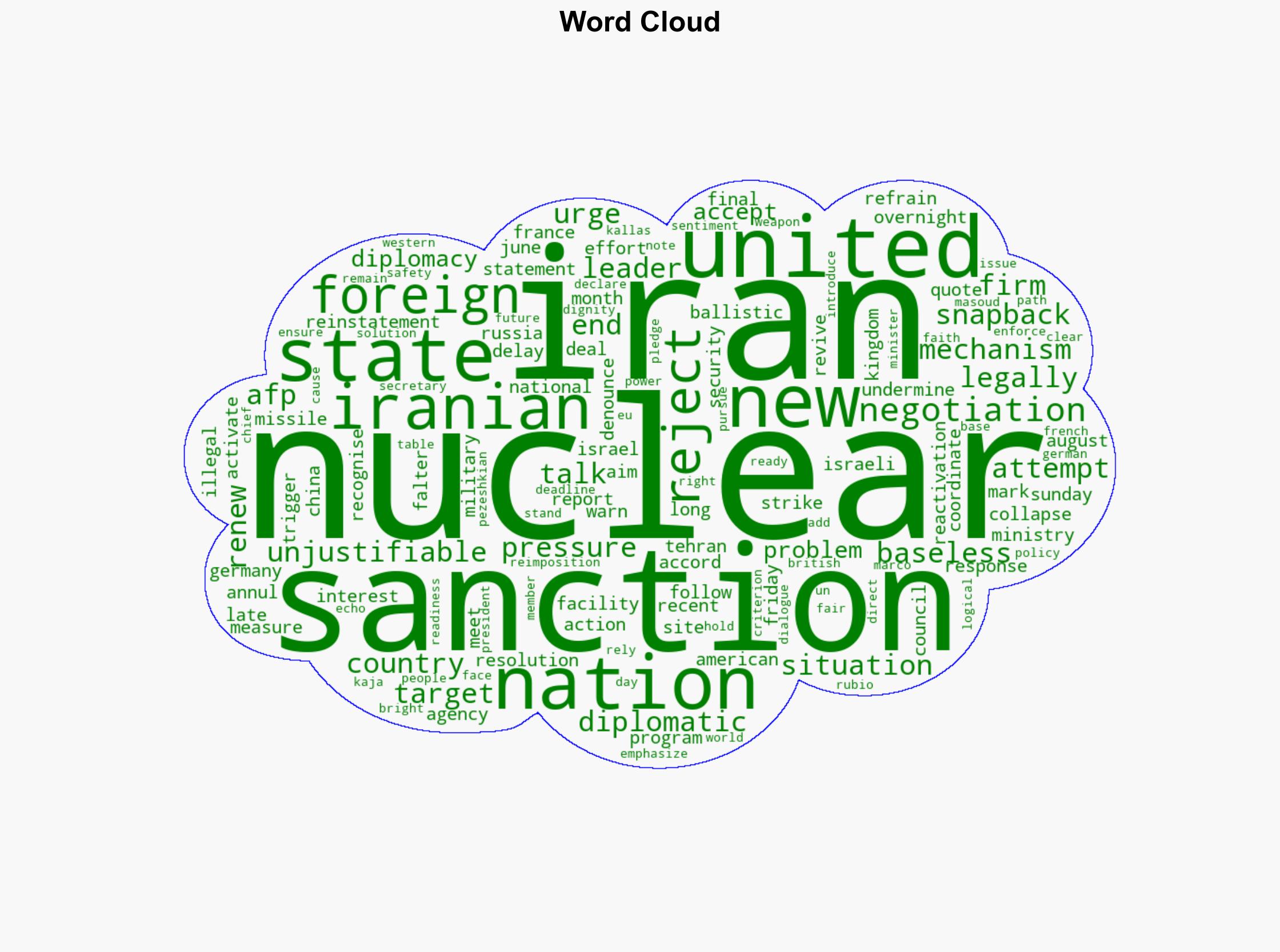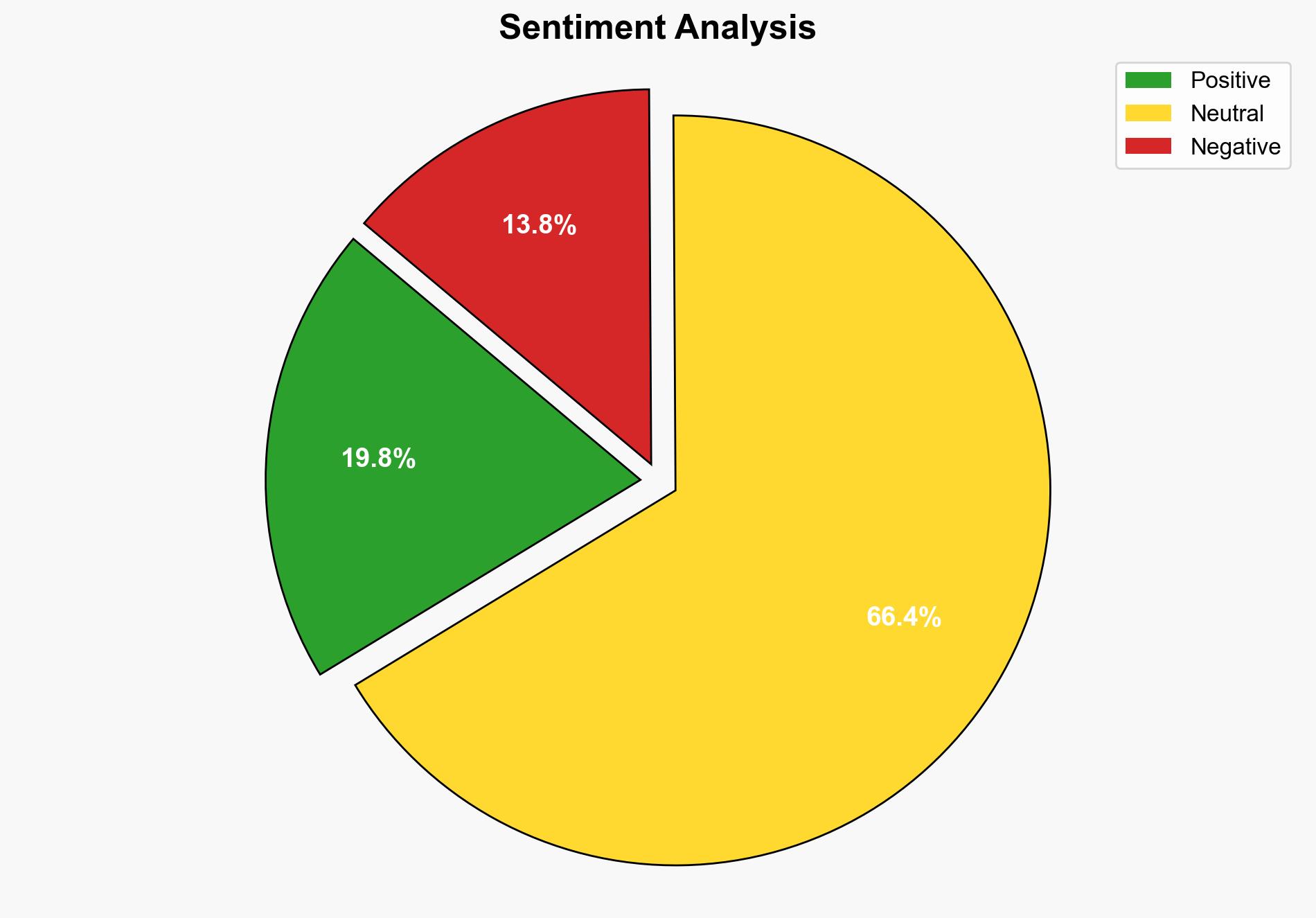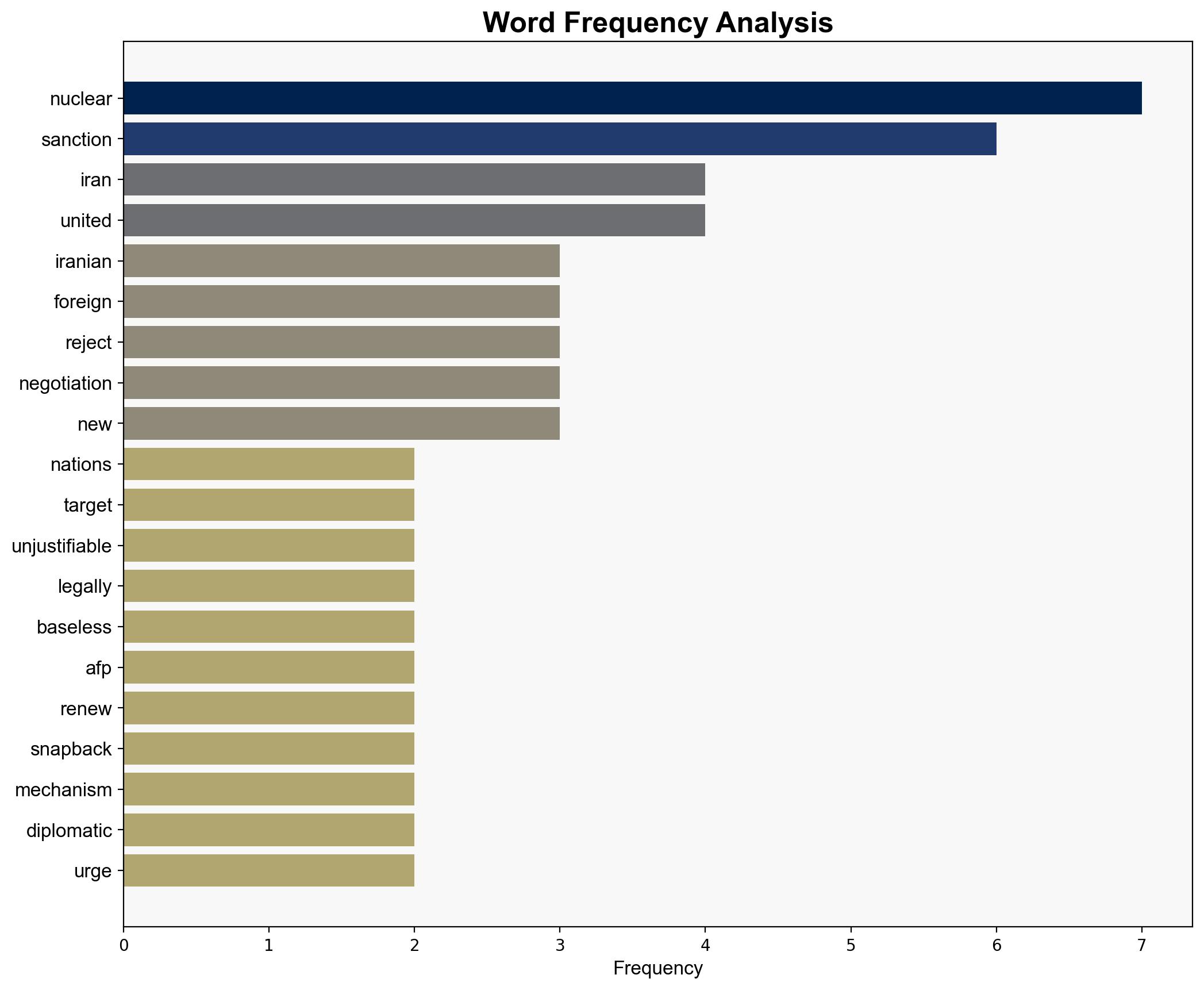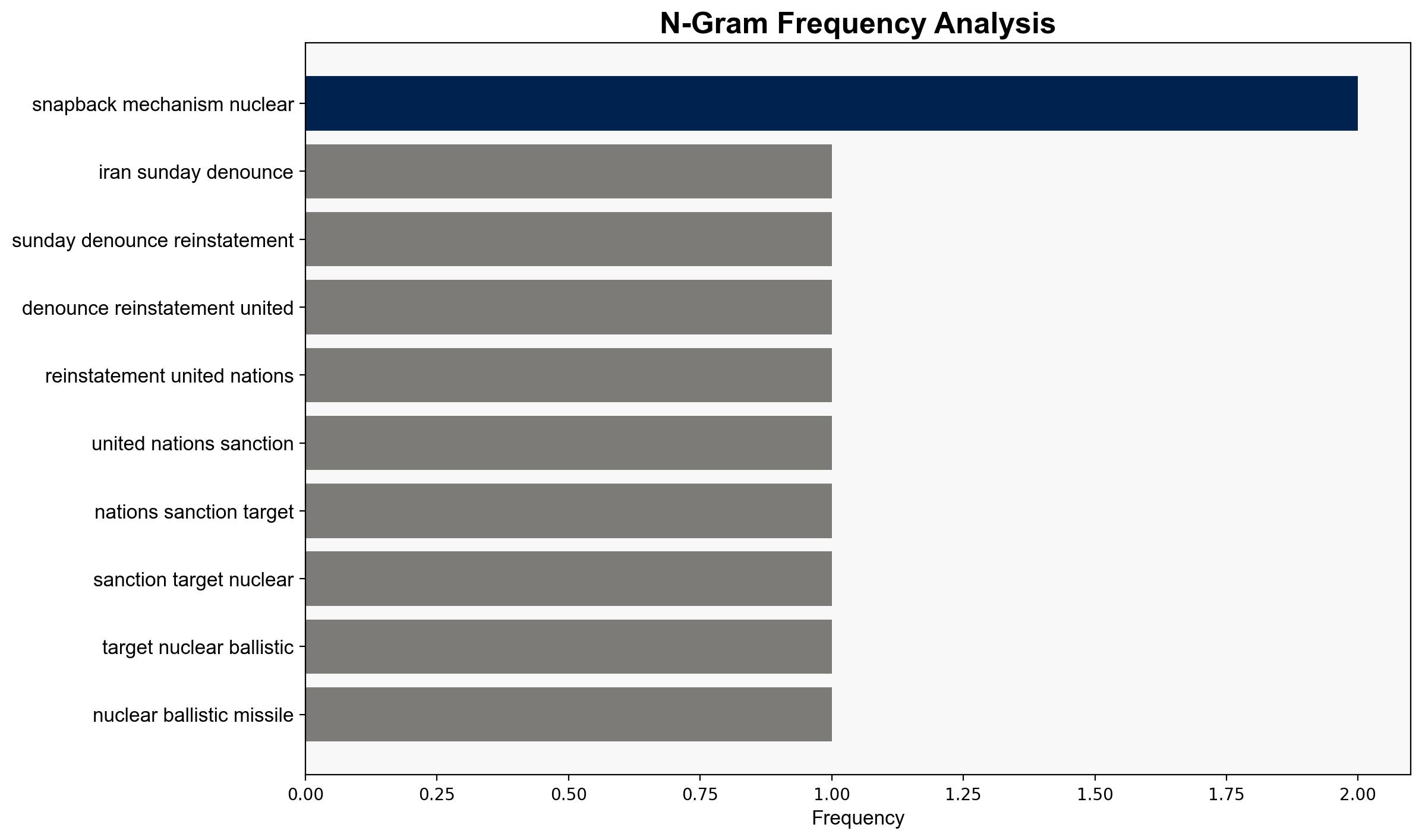Tehran condemns snapback sanctions rejects new nuclear talks – Israelnationalnews.com
Published on: 2025-09-29
Intelligence Report: Tehran condemns snapback sanctions rejects new nuclear talks – Israelnationalnews.com
1. BLUF (Bottom Line Up Front)
The most supported hypothesis is that Iran’s rejection of snapback sanctions and new nuclear talks is a strategic posture to strengthen its negotiating position. This report, using structured analytic techniques, suggests a medium confidence level in this hypothesis. It is recommended to maintain diplomatic channels open while preparing for potential escalation in regional tensions.
2. Competing Hypotheses
1. **Hypothesis A**: Iran’s rejection of snapback sanctions and new nuclear talks is a strategic move to strengthen its bargaining position in future negotiations.
– **Supporting Evidence**: Iran’s emphasis on the illegality of sanctions and readiness for “logical, fair dialogue” suggests a desire to renegotiate terms more favorable to its interests.
– **Contradictory Evidence**: The firm response warning could indicate a genuine unwillingness to engage in talks under current conditions.
2. **Hypothesis B**: Iran’s stance is a genuine reflection of its unwillingness to engage in any negotiations under the current international pressure.
– **Supporting Evidence**: The consistent rejection of sanctions and emphasis on national dignity suggests a hardline stance.
– **Contradictory Evidence**: The mention of readiness for dialogue under certain conditions implies potential openness to negotiation.
3. Key Assumptions and Red Flags
– **Assumptions**: It is assumed that Iran’s public statements reflect its true intentions. The assumption that international pressure will lead to a change in Iran’s stance could be flawed.
– **Red Flags**: The lack of detail on Iran’s “logical, fair dialogue” criteria is a potential red flag, indicating possible deception or strategic ambiguity.
– **Blind Spots**: The internal political dynamics within Iran that may influence its foreign policy stance are not fully explored.
4. Implications and Strategic Risks
– **Geopolitical Risks**: Increased tensions could lead to regional instability, affecting global oil markets and international security.
– **Economic Implications**: Prolonged sanctions may further strain Iran’s economy, potentially leading to domestic unrest.
– **Potential Escalation**: Military actions by Israel or the United States could escalate into broader conflict.
– **Psychological Impact**: Continued international isolation may harden Iran’s resolve, reducing the likelihood of diplomatic resolution.
5. Recommendations and Outlook
- Maintain open diplomatic channels to explore Iran’s criteria for dialogue.
- Prepare contingency plans for potential military escalation in the region.
- Engage with allies to present a unified front in negotiations.
- **Scenario Projections**:
– **Best Case**: Iran agrees to new negotiations under modified terms, reducing regional tensions.
– **Worst Case**: Military conflict escalates, leading to significant regional instability.
– **Most Likely**: Continued diplomatic stalemate with periodic escalations.
6. Key Individuals and Entities
– Masoud Pezeshkian: Iranian President
– Marco Rubio: Secretary of State
– Kaja Kallas: EU Foreign Policy Chief
7. Thematic Tags
national security threats, cybersecurity, counter-terrorism, regional focus





